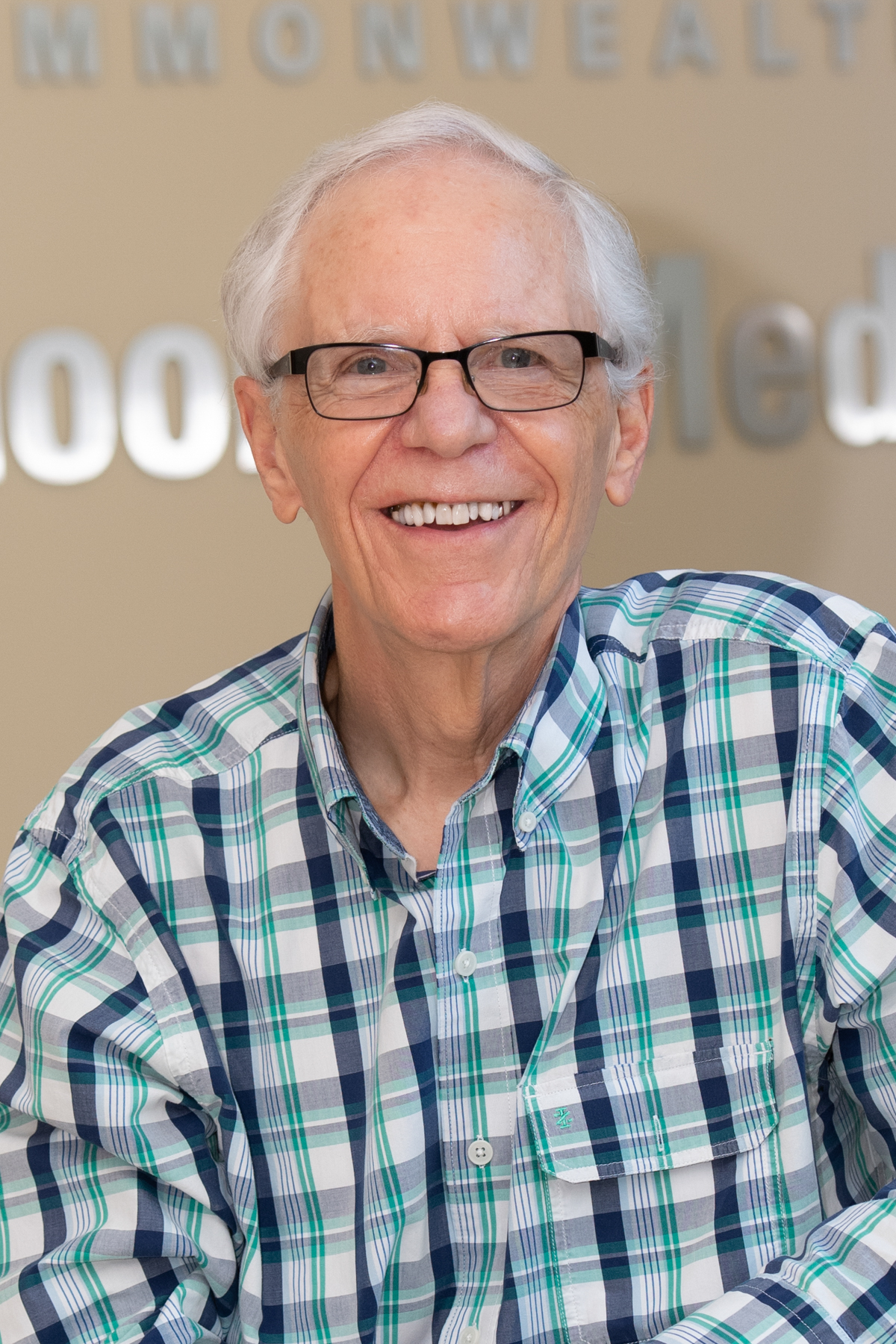 Since joining the Department of Anatomy and Neurobiology in 1986, John W. Bigbee, Ph.D., Professor with tenure, has demonstrated excellence in the teaching of multiple graduate level courses as well as leading programs including Scientific Foundations of Medicine, Medical Histology, and Neuroscience. His student evaluations are outstanding, leading to his recognition with over 33 formal teaching awards. He serves as Program Director for the Neuroscience Ph.D. Program and has been graduate chair for 5 Ph.D. and 12 Master’s students, and served on a remarkable 150+ graduate student committees. His supportive, caring relationships with colleagues and students were recognized in 1999 with the SOM Distinguished Mentor Award and in 2002 he received the VCU Award for Innovating Excellence in Teaching, Learning and Technology. In 1994, he received the Gender Equity Award from the American Medical Women’s Association.
Since joining the Department of Anatomy and Neurobiology in 1986, John W. Bigbee, Ph.D., Professor with tenure, has demonstrated excellence in the teaching of multiple graduate level courses as well as leading programs including Scientific Foundations of Medicine, Medical Histology, and Neuroscience. His student evaluations are outstanding, leading to his recognition with over 33 formal teaching awards. He serves as Program Director for the Neuroscience Ph.D. Program and has been graduate chair for 5 Ph.D. and 12 Master’s students, and served on a remarkable 150+ graduate student committees. His supportive, caring relationships with colleagues and students were recognized in 1999 with the SOM Distinguished Mentor Award and in 2002 he received the VCU Award for Innovating Excellence in Teaching, Learning and Technology. In 1994, he received the Gender Equity Award from the American Medical Women’s Association.
Dr. Bigbee has built an outstanding academic resume, with consistent grant funding, and contributing over 70 high-impact research papers and book chapters. He has provided meaningful service to dozens of SOM and University committees, as well the community, including his sponsorship of Henrico’s high school student research program.
In the 1990s Dr. Bigbee and colleague Alice S. “Dolly” Pakurar, Ph.D. (retired) were among the first in the nation to develop a digital platform for studying microscopic specimens. Including more than 1,200 images, interactive quizzes, and other resources, Digital Histology: An Interactive CD Atlas and Review Text has been used by over 6000 VCU medical, dental, graduate, and undergraduate students. Over time, the shift in digital learning standards rendered this program inaccessible to modern devices. In order to address this, Dr. Bigbee negotiated complete copyright reversion and has developed an online, open access version of the program, now available at www.digitalhistology.org. This version is available at no cost to learners around the world. Website statistics show an average of 400 visits/day since January 1, 2020 with approximately 15,000 page views/day. The majority of users come from across the US and Canada, with additional visits from across Central and South America, Europe, China, Australia and India.
“His instruction fosters critical thinking/reasoning and he appreciates that the most effective manner in which he can educate is by providing opportunities for student engagement in a safe, collaborative and nonjudgmental environment. In doing so, he forges relationships with students based on trust and mutual respect, and his genuine concern for their wellbeing is readily apparent…his engaging teaching style, supportive nature and ability to promote an optimal learning climate are all factors that I seek to emulate in my own teaching practices,” states former student Melissa McGinn, Ph.D., Associate Professor, Department of Anatomy and Neurobiology.
Dr. Bigbee extends the same support for learning to colleagues, encouraging faculty who are introducing new teaching approaches, and attends faculty development so he can share the newest information on effective teaching methods.
“I was an instructor in medical, dental, and graduate programs for 42 years and worked at three different universities and I can say without any reservation that John Bigbee is the best teacher in and out of the classroom that I ever have been associated with,” declares Randall E. Merchant, Ph.D. Professor of Anatomy & Neurobiology (retired). This year, Dr. Bigbee will be honored at the Association of American Medical Colleges Annual Meeting with the 2020 Alpha Omega Alpha Robert J. Glaser Distinguished Teacher Award, one of only four teaching faculty in North America to be so honored this year.
“All of us students…who have interacted with Dr. Bigbee in some capacity can speak to his unmatched kindness, compassion, patience, insightfulness, neuroscience and histology expertise, teaching excellence, and absolute dedication to his students.” summarizes Megan Sayyad, Ph.D., 2019 Neuroscience Graduate Program graduate.